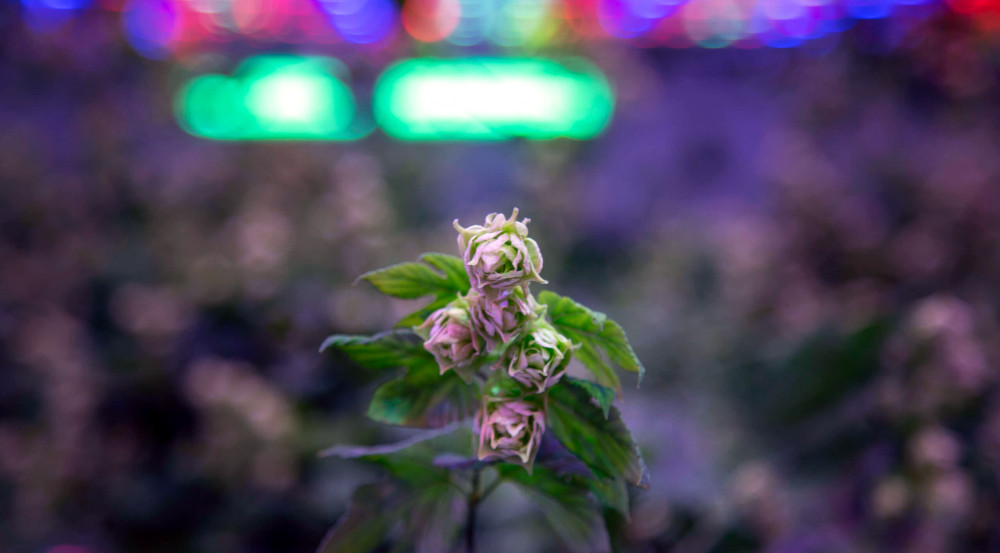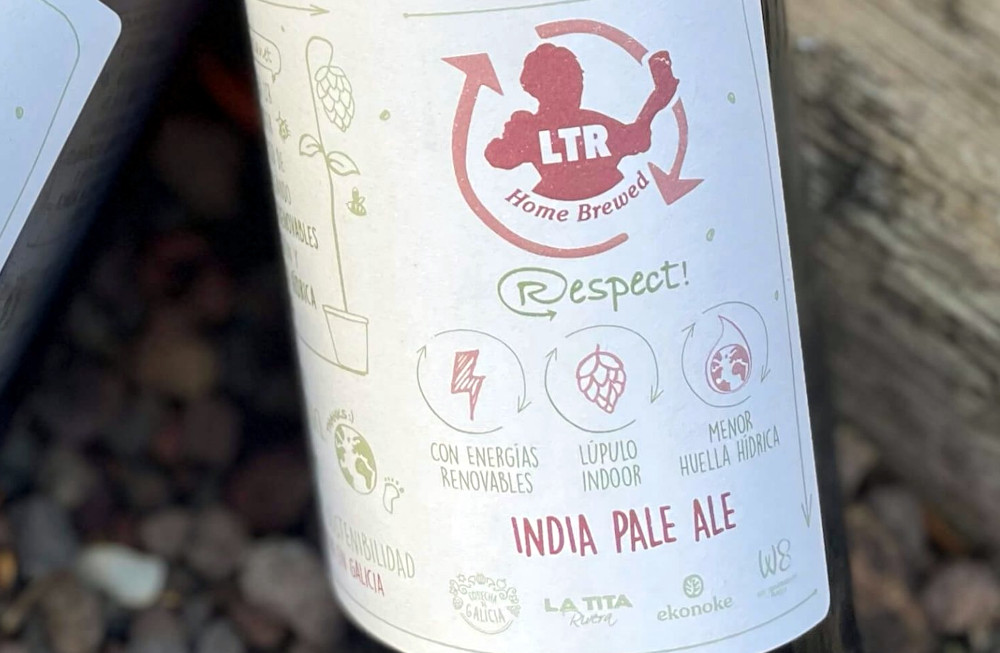Beer has been a societal staple for centuries. From the crisp taste of a
pale ale to the boldness of a stout, the drink has a way of bringing people
together.
Behind every pint are hops — small, green buds responsible for beer’s signature
bitterness and aroma. Sadly, as with many crops — including fellow gastronomic
favorites
cocoa,
coffee and wine
— hops’ future is threatened by climate change. With rising temperatures,
erratic weather and unpredictable harvests, projections for
2021–2050 show a decline
in hop yields of up to 18.4 percent, compared to 1989–2018. In an industry where
consistency is key, this uncertainty spells trouble for brewers and consumers
alike.
Enter Ekonoke, a Spanish agri-tech startup that
is reimagining how hops can be grown. By taking hop cultivation indoors, Ekonoke
is offering a lifeline to both brewers and the environment — ensuring that the
world’s most popular alcoholic beverage can continue to flow, without
compromising the planet.
Making the impossible possible
 Image credit: Ekonoke
Image credit: Ekonoke
Ekonoke’s journey began in 2018 when Antonio
Rojas and Javier
Ramiro experimented with
growing microgreens for restaurants, whilst Inés
Sagrario and Ana
Saez focused on
vertical gardens for salad greens. The four co-founders’ paths crossed at a
beverage-focused event in Madrid organized by Eatable
Adventures, sparking the idea to join forces.
In 2019, they launched Ekonoke — initially focused on minimizing waste from local food
production. However, when COVID-19 shuttered the restaurant
industry in 2020, the team was forced to pivot and discovered an entirely new
challenge: Hops.
“We started looking into crops that were already affected by climate change, and
that’s when we stumbled upon hops,” co-founder and CEO Inés Sagrario tells
Sustainable Brands® (SB). “When we first brought up the idea of growing
hops indoors, many brewers we spoke with in Spain were very skeptical. They told
us it was impossible — that’s the kind of thing you don’t tell an entrepreneur.”
The team persevered, reaching out to anyone who might have access to hops
plants. A connection in Basque Country helped them gather hop rhizomes,
which allowed the founders to begin their first trials in 2020. Their
breakthrough in indoor hops cultivation came in early 2022, proving that what
was once thought impossible was possible.
Quality over quantity
Hops are essential to brewing — providing the bitterness and aroma that
characterize beer’s flavor. However, the global hops market is under threat.
Grown mainly in southern Germany and the Pacific Northwest of the US,
the plant is increasingly impacted by extreme weather events including droughts
and high temperatures. In 2022, a drought in Germany reduced hop yields by 30
percent, with quality dropping by 40
percent.
These disruptions are concerning for brewers, as hops’ value is more in their
quality than their quantity.
“The problem with hops is that they’re not just measured by weight,” Sagrario
explains. “Brewers don’t care about the kilos of hops as much as they care about
the kilos of essential oils and resins in the hops — those are the compounds
that create the bitterness and flavor in beer. So, if you have poor-quality
hops, which means they have fewer acids for bitterness or fewer essential oils,
then you need to use twice the amount of hops to maintain your beer’s flavor.
It’s not just about quantity; it’s about ensuring the right quality. And if the
quality drops because of climate-induced weather events, it’s going to force
brewers to either use more hops or change their beer’s formula entirely — which
is a nightmare for consistency. This is a huge challenge for brewers who rely on
hops to create their signature beer profiles.”
The problem is compounded by the diversity of hops. There are up to 300
different cultivars, each responsible for the unique flavor profiles of beers.
Losing a specific cultivar, especially those more susceptible to climate change,
could force brewers to change their beer formulas entirely.
“Each beer tastes the way it does because of the specific varieties of hops that
are used,” Sagrario says. “It’s even more complex than wine with its grape
varieties — brewers use a carefully curated selection of hops to craft their
beers. If one of these cultivars becomes unavailable due to climate change, it
could have a massive impact on the final product. You could be forced to
completely alter a recipe and risk losing the beer’s identity.”
Cultivating the beer of the future
Ekonoke’s customizable vertical-farming platform creates a stable, sustainable
growing environment for hops — providing brewers with a reliable, high-quality
source of hops year-round. The indoor farms use controlled, automated systems
powered by renewable energy that ensure optimal growing conditions for each
variety.
The company’s pilot farm spans 1,000 square meters, divided into three rooms of
approximately 300 square meters each. To scale up, the company plans to expand
to industrial-sized farms covering 11,000 to 12,000 square meters, with each
room measuring 1,000 square meters. With 10-12 rooms, each on a different growth
cycle, Ekonoke will be able to harvest hops from one room every week —
eliminating the risks of seasonal fluctuations and providing brewers with
consistent, high-quality hops throughout the year.
“We’re not just growing hops; we’re growing the future of brewing,” Sagrario
asserts. “What we’re doing is giving brewers the chance to secure a stable,
reliable supply of hops that aren’t dependent on unpredictable weather patterns.
Our indoor farming methods are designed to be consistent, climate-resilient and
scalable — so we can guarantee brewers a regular, high-quality harvest. The
result is better beer, with no compromises. And as we scale, we hope to show
that this model can be applied to many other crops, helping to solve bigger
issues in agriculture as we move forward.”
Scaling up is a key priority for the team — which plans to grow their hop farms
2-3 hectares per year over the next 6-7 years, reaching seven hectares by 2029.
Brand partnerships
 La Tita Rivera’s IPA is the first commercial beer to use Ekonoke’s hops |
Image credit: Factoria de
Cerveza
La Tita Rivera’s IPA is the first commercial beer to use Ekonoke’s hops |
Image credit: Factoria de
Cerveza
Ekonoke’s sustainability efforts are reinforced through strategic partnerships
with industry leaders including AB InBev, Bain &
Company and
SIEMENS — all of which have played a
crucial role in scaling Ekonoke’s technology. The startup took part in AB
InBev’s 100+ Accelerator,
which helped validate both the quality and unit economics of their indoor hop
farming system; SIEMENS helped industrialize the company’s systems, ensuring
robustness for large-scale production; while Bain & Company conducted a
comprehensive analysis of Ekonoke’s localized production model vs that of outdoor hops
cultivation. The findings were striking.
“When you factor in the health impact of pesticides — which we don’t use — the
difference becomes even more significant,” Sagrario says. “Our greenhouse gas
emissions are drastically lower, with a total carbon footprint of just 0.1
compared to traditional methods. We also eliminate the need for transportation;
and in the same square meter, we can harvest up to four times a year —
accelerating carbon capture through
photosynthesis.”
Quality control is a top priority for Ekonoke. They send samples from every
harvest to a certified lab in Germany, where the chemical composition —
including essential oils and alpha acids — is thoroughly tested. The vertically
grown hops are also tested by brewers, with strong validation from key partners
including Estrella Galicia — one of Spain’s
largest brewers and Ekonoke’s first major partner. The pilot farm, located in
Galicia near Estrella’s brewery, will soon be expanded with an industrial-scale
farm next to Estrella’s new brewery.
Ekonoke has also partnered with Cosecha de
Galicia, the agricultural innovation
powerhouse of Hijos de Rivera, the
brewers behind and parent company of Estrella Galicia. This collaboration has
allowed Ekonoke and Cosecha de Galicia to learn from each other as they scale
production in Galicia. The first commercial beer to use Ekonoke’s hops — an
India Pale
Ale
from Hijos’ La Tita Rivera brand — is already available at La Tita Rivera
gastropubs in Madrid, Coruña and Vigo, with many more brews to come.
The company’s platform also allows fine-tuning of environmental conditions to
experiment with new hop varieties and enhance specific characteristics —
enabling brewers to differentiate products with exclusive hop cultivars, driving
innovation in the brewing industry.
Beyond better brews
Beyond helping beerologists everywhere breathe a sigh of relief, Ekonoke’s
technology could be a game-changer for the medical field: Hops have
antibacterial properties and potential applications in treating
Alzheimer’s,
Crohn’s
disease
and even
cancer.
“Hops are part of the Cannabaceae family; and they share similar properties
to CBD, without the regulatory complexities,” Sagrario explains. “We’re
exploring how to unlock the medical potential of hops by increasing the supply.”
In addition, Ekonoke is researching how to extract valuable compounds from its
waste material for use in cosmetics and sustainable packaging.
Get the latest insights, trends, and innovations to help position yourself at the forefront of sustainable business leadership—delivered straight to your inbox.
Scarlett Buckley is a London-based freelance sustainability writer with an MSc in Creative Arts & Mental Health.
Published Dec 30, 2024 8am EST / 5am PST / 1pm GMT / 2pm CET